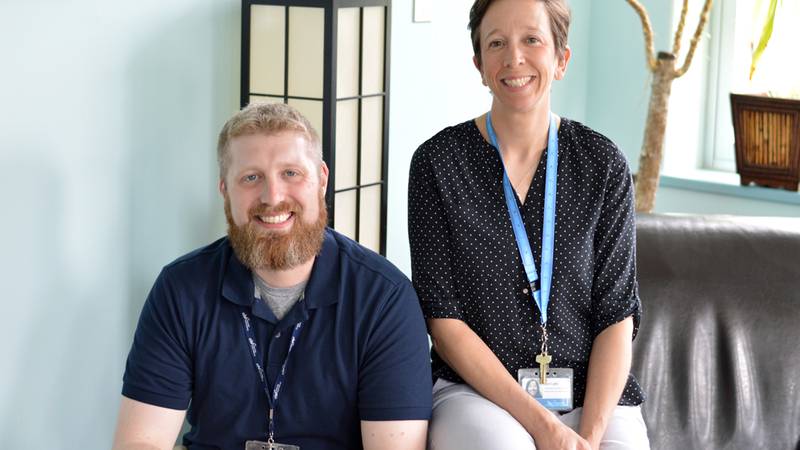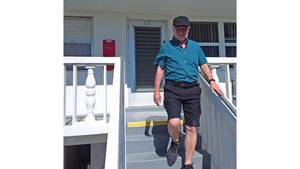Sometimes when facing a mental health crisis, thinking about the next steps can be overwhelming. There are, however, options and help.
When individuals arrive at the QEII’s Charles V. Keating Emergency and Trauma Centre, they may be consulted to Psychiatric Emergency Service, or access the Mental Health Mobile Crisis Team (MHMCT). These two services help provide assessment, treatment and support to individuals in the moment. But there is another layer of support beyond hospital admission or a referral to community-based services — the Mental Health and Addictions (MHA) Urgent Care Service helps them find a path toward recovery and improved wellbeing.
Matt White, a frontline manager with the team, says the NSHA Central Zone MHA Urgent Care Service provides service for individuals aged 19 and older who have not had contact with other mental health programs for at least six months. Individuals are first seen by Psychiatric Emergency Services or MHMCT. Once referred by these two services, clinicians with the MHA Urgent Care Service meet with the person within 24 to 72 hours.
“A client would be someone who requires rapid follow up to meet immediate needs and receive further assessment,” Matt says. “By that time their safety has been assessed and it is deemed they’re not at an immediate risk but they need a follow-up to stabilize their situation.”
The person might need further assessment of their mental health or support in learning what help is available. The MHA Urgent Care Service usually sees people for one to three sessions. In that time, they work with the person to stabilize their crisis and provide them with skills and resources to move forward.
“The rest of the province has picked up on what we’re doing and they’re starting to look at replicating this method of care delivery across the province,” Matt says.
Lori Lake, a clinician with the Mental Health Urgent Care team, says those follow-up visits ensure they connect the person to the best possible help available.
“People come to Urgent Care because MHMCT or the psychiatrist in Psychiatric Emergency Service has assessed them and they feel there is a need for urgent follow-up,” she says. “We do some basic skill building to improve coping, some relaxation techniques and crisis stabilization counselling. We begin planning goals for treatment and therapy.”
Research indicates people who are connected quickly to resources tend to stay connected with their care and recovery programs. “We’re sometimes bridging the gap for people who have a crisis while they are waiting to be connected to longer term services,” says Matt.
Matt is also the frontline manager of the Mental Health Mobile Crisis Team and knows the importance of being able to assess somebody during a crisis and to provide a quick response for help.
MHA Urgent Care Service focuses on what’s happening with the person in the here and now, and what steps the individual can be supported to take to get past the initial stage of crisis.
“We talk to them about what’s helped them in the past, what resources they have used previously and what their goals are now,” Lori says. “Sometimes it’s life stressors that are impacting the ability to cope and manage, so Urgent Care identifies resources that can help support their specific situation and facilitate navigation to those resources, such as housing, community mental health or private counselling.”
The team sees people from a wide range of backgrounds and ages. For some, it’s the first time they’ve sought help.
“After someone’s been at the emergency department, it can bring awareness to their current support system,” Lori says. “Maybe their support network didn’t realize how much they were struggling. I think it gives people hope and knowledge that they’re not alone.”








